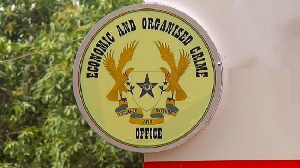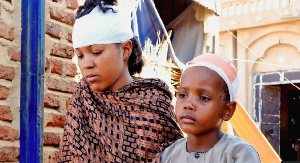Sunyani, Nov. 10, GNA - Ms Juliana Amponsah, Brong-Ahafo Regional Director of National Commission on Women and Development on Thursday expressed concern about cultural practices that "trample on the well-being of women and children in the country".
She therefore urged traditional authorities, "as the embodiment of the people", to help eliminate such practices.
Ms Amponsah was speaking at a one-day sensitization workshop in Sunyani on female genital mutilation. It was jointly organised by the Commission and Ghana Association for Women's Welfare, an NGO. Present were queen mothers, religious groups, media practitioners and other stakeholders.
Ms Amponsah noted that female genital mutilation was not being practised in the three northern regions alone but also in Brong-Ahafo. She dispelled beliefs and myths associated with "such harmful practices" and appealed to the media to incorporate the education about the practices and their effects in their programmes.
Mrs. Florence Ali, Programme Officer of the NGO, mentioned clitoridectomy and infibulation as the common types of female genital mutilation.
"Culture is part of society and cannot therefore be thrown away, but we need to abolish traditional practices that threaten human life", she said.
The Programme Officer noted with concern that even though laws on female genital mutilation were passed in 1994 to deter people from indulging in the practice, there had been no positive response in society.
Mrs. Ali, also a health practitioner, appealed to Parliament to review the laws and adopt more punitive measures to serve as deterrent to culprits.
She said the NGO was formed in 1984 after selected African countries met in Senegal to deliberate on the rights and recognition of women on the continent.
The programme Officer said, since its formation, the organisation had been championing the fight against female genital mutilation, particularly the three northern regions.
Mrs. Ali expressed the view that since the practice was part of customary rite by some ethnic groups in the country, there was the need for an intensive public education on its effects for the perpetrators to appreciate its dangers and help in the fight against it. Mr. Kwasi Boakye, Regional Director of the Commission on Human Rights and Administrative Justice (CHRAJ), called for the incorporation of the study of female genital mutilation in basic education curriculum to create greater public awareness about the practice. He said violators of the law against the practice were liable for imprisonment not less than three years.
Regional News of Thursday, 10 November 2005
Source: GNA












